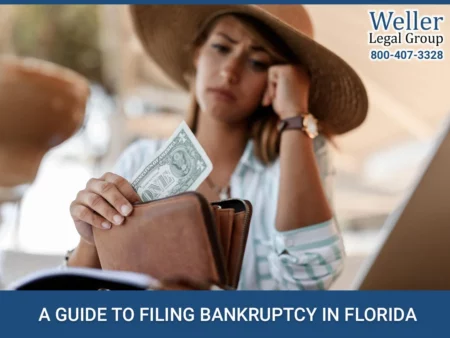 Dealing with financial challenges is a part of life. However, if you’re struggling financially, you should know that you aren’t alone. Filing bankruptcy because you’ve lost your job, suffered a catastrophic illness, or had another major life event shouldn’t be embarrassing. While it can be confusing and overwhelming, here are some of the basic things that you should know.
Dealing with financial challenges is a part of life. However, if you’re struggling financially, you should know that you aren’t alone. Filing bankruptcy because you’ve lost your job, suffered a catastrophic illness, or had another major life event shouldn’t be embarrassing. While it can be confusing and overwhelming, here are some of the basic things that you should know.
How do you qualify to file for bankruptcy?
You’re already qualified if you haven’t ever filed for bankruptcy before or the waiting period (something that depends on what chapter you file) is over. There are also some specific chapter qualifications that you must meet, including:
- Chapter 7: Your family’s gross income must be lower than the median income for the size of a family in the state that you reside in. You can use the Quick Median Income Test or talk to a bankruptcy attorney to determine this.
- Chapter 13: Filing bankruptcy under Chapter 13 can be expensive because it comes with some additional benefits. To qualify, you’ll need to pay whichever is larger, the value of the nonexempt property, your disposable income, or your priority nondischargeable debt.
Which bankruptcy chapter should you file for?
Typically, people will file for either Chapter 7 or Chapter 13 bankruptcy. If you’re like most people, you probably don’t know the difference between these. While a bankruptcy attorney can help you determine which type you should file for, here are some things you should know:
- Chapter 7: There are a few reasons why this is most people’s first choice when filing for bankruptcy. Any bankruptcy attorney will tell you that it’s quick (it only takes a few months to complete) and inexpensive (you don’t pay anything to any creditors). This is a great option if you only have those things that are necessary for living and working (i.e., no luxury items). However, since there isn’t a payment plan attached to Chapter 7, you won’t have the option to catch up on a late mortgage or car payment, so you may lose these items if you’re behind on their payments.
- Chapter 13: Unlike Chapter 7, with this bankruptcy, you’ll need to pay your creditors at least some of what you owe them throughout a 3 – 5-year repayment period. While this may not sound great right away, you should know that there are certain benefits you’ll get here that you won’t get with Chapter 7. For instance, you’ll be able to keep all your property even if your home is in foreclosure or your car is about to be repossessed. While you can’t discharge these items, your bankruptcy attorney can help you use your bankruptcy to force your creditor into agreeing to a new payment plan. However, the biggest downside here is that Chapter 13 is expensive – so much so that many people can’t afford its monthly payments.
Does filing for bankruptcy erase all the debts you have?
While filing bankruptcy will clear many debts (e.g., credit cards, mortgage, utilities, medical, car, personal loans), you won’t be able to discharge all your debts. There are what’s known as “nondischargeable debts” (e.g., domestic support, recent tax debt, student loans). These are things that won’t go away in bankruptcy. To determine whether bankruptcy is worthwhile, you should discuss this with a bankruptcy attorney before filing.
Do you need more help with filing for bankruptcy?
Weller Legal Group in Clearwater, FL, has bankruptcy attorneys who can make the entire process easy for you. It’s our goal to provide you with all the information you need. Contact us today to set up a free consultation so you can make an informed decision regarding bankruptcy.
Picture Credit: Freepik

